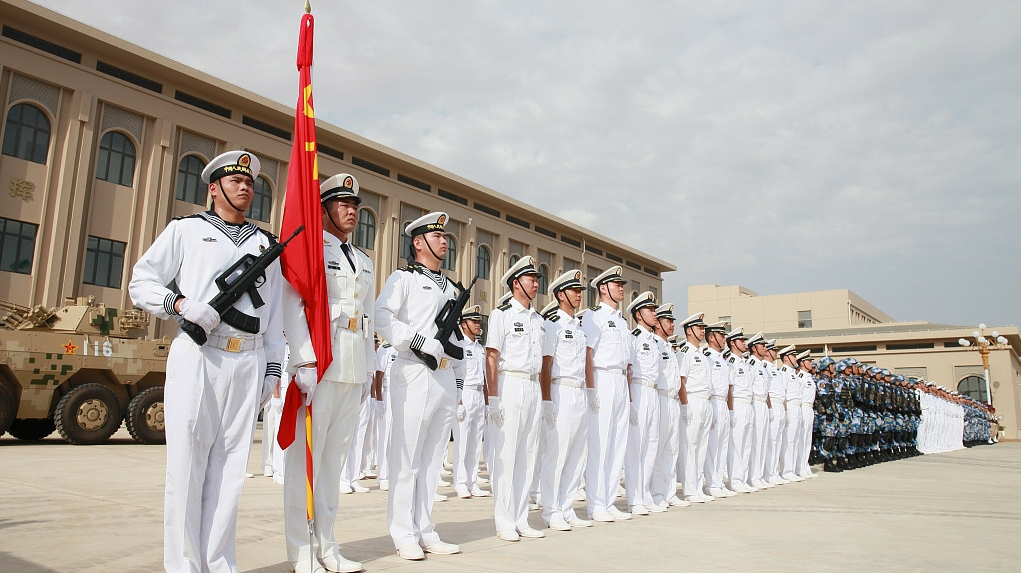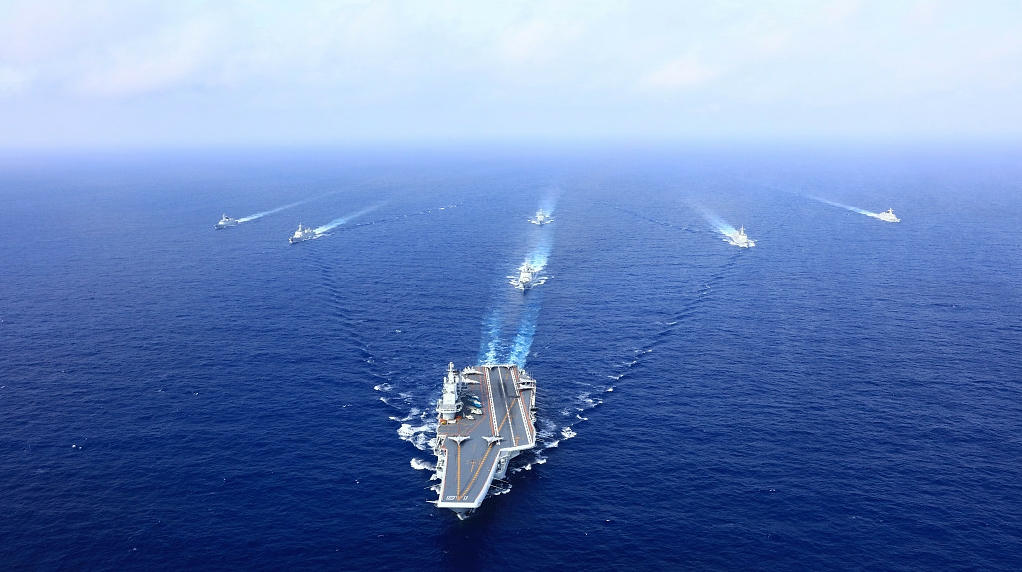
15:30, 14-Aug-2019
Full episode – White Paper on China's National Defense

By Robert Lawrence Kuhn
In 2015, a civil war in the small Middle Eastern nation of Yemen led to a complete collapse of order, with fierce fighting between government forces and various rebel groups. In addition to thousands of Yemenis who were endangered, many foreign citizens working in the country were threatened by the spread of violence.
There were only 600 Chinese people working in Yemen at the time, but the nation could not allow them to come to harm, both for humanitarian and for strategic reasons. China's evacuation not only demonstrated that this country is willing and prepared to take action to protect its people, but also garnered the sincere thanks of many other nations whose citizens were also saved from danger by Chinese ships.
A decade or more ago, China would probably have simply called for peace, order and respect for national sovereignty, and left it at that. But leadership has become aware that the increase in China's economic and commercial reach has left the nation unable to ignore the defense of its overseas interests.
China's basic policy of discouraging outside military intervention has not changed, but the white paper issued in 2013 demonstrated an evolving approach: "With the gradual integration of China's economy into the world economic system, overseas interests have now become an integral component of China's national interests." The paper continued, "Security issues are increasingly prominent, involving overseas energy and resources, strategic sea lines of communication, and Chinese nationals and legal persons overseas." Defending these interests was explicitly stated to be a new part of the mission of the People's Liberation Army.

China's Navy aircraft carrier formation sails in the South China Sea, on April 18, 2018. /VCG Photo
China's Navy aircraft carrier formation sails in the South China Sea, on April 18, 2018. /VCG Photo
August 1st, 2019 is the 92rd anniversary of the People's Liberation Army. To celebrate, and for the first time in four years, China released a white paper on the country's national defense strategy. Titled "China's National Defense in the New Era," it focuses on National Defense Policy, Mission and Tasks, Reform of the Armed Forces, and Defense Expenditures.
For example, what are China's security risks and challenges? How to safeguard national sovereignty, unity, territorial integrity? What about Global Military Competition? Are China's military expenditures "Reasonable and Appropriate"? Can China's armed forces contribute to building a community with a shared future for humankind?
To answer these questions, we meet with Colonel Cao Yanzhong from the PLA Academy of Military Science and Cao Weidong, researcher from Naval Research Academy.
According to Colonel Cao Yanzhong, the most important aspect of the white paper is that it is a declaration to the world of the strategic support and firm resolve of China's national defense to safeguard national sovereignty, security, development interests and the great rejuvenation of the Chinese nation.
In Cao Weidong's view, China's national defense is committed to serving the goal of building a community with a shared future for mankind. Even as its economy grows with stronger national defense power, China will still not seek hegemony. Even when the country emerges as a developed country after realizing the Chinese dream, China will never seek hegemony. It is a promise China makes to the world.
With regard to the National Defense expenditure, "Transparency" is the image that China intends to project, and that intent, even by itself, should be recognized. The Defense Expenditure section is entitled "Reasonable and Appropriate". Is it so? China's defense expenditures as a percentage of GDP has fallen from over 5% in 1979 to a bit over 1% in 2017, well lower than those of the U.S. and other developed countries.
These figures are indeed on a clear downward trend, but since China's economy is so large, and growing so fast, more meaningful than relative statistics with respect to Transparency are the open declarations of new weaponry such as aircraft carriers (noted in the plural), fighters, missiles, and main battle tanks. In rationalizing its growing military budget, China states that it faces serious challenges in safeguarding national sovereignty, territorial integrity, maritime rights and interests, and national unity, which it calls "a daunting task." All in all, China states, its defense expenditure is open and transparent, and its spending is reasonable and appropriate.
SITEMAP
Copyright © 2018 CGTN. Beijing ICP prepared NO.16065310-3
Copyright © 2018 CGTN. Beijing ICP prepared NO.16065310-3